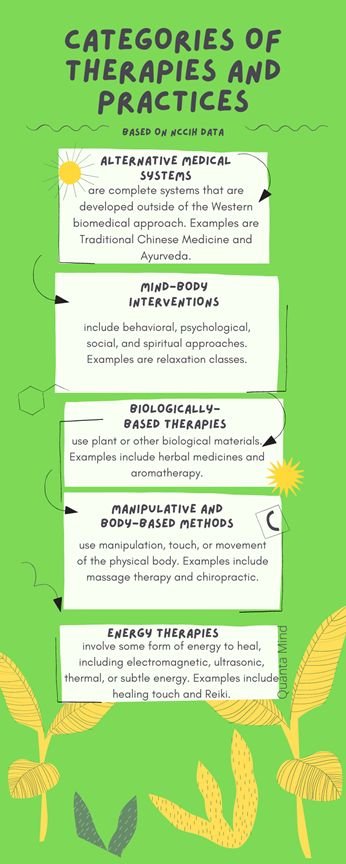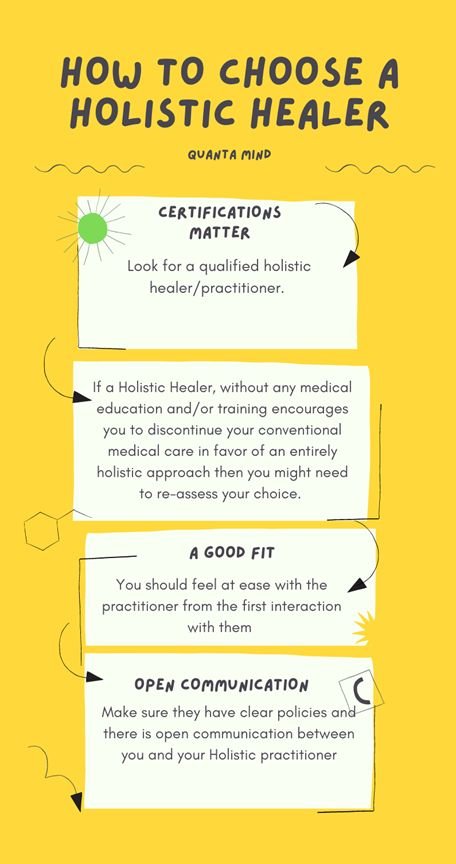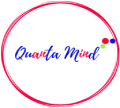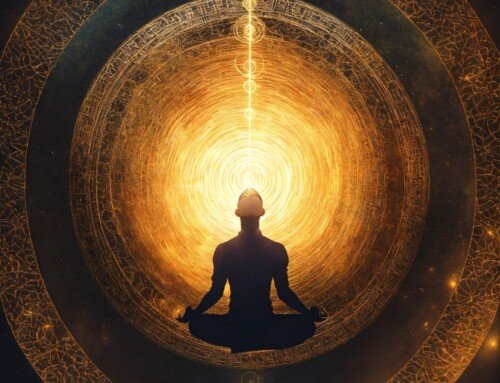As a practitioner of holistic healing techniques (Mindfulness and ThetaHealing), I have encountered numerous questions over the years. In order to share my knowledge and experience with a wider audience, I have written a 3-part series of blog posts addressing these common questions. Whether you are a seasoned practitioner or just starting your journey, I hope you will find something of value in these blogs.
If you have specific inquiries, please feel free to comment below and I will include them as topics in the series. This way, more people can benefit from my expertise.
Holistic Healing
Holistic healing, complementary healing, and alternative healing are often used interchangeably and may be referred to as medicine or therapy. These practices, also known as alternative medicine, complementary therapies, holistic practices, or integrative medicine, involve non-invasive and non-pharmaceutical treatments such as meditation, energy healing, chiropractic, and acupuncture.
It is important to highlight that although the terms “alternative” and “complementary” are often used interchangeably however, they refer to different concepts:[i]
- If an approach is used together with conventional medicine, it is considered “complementary.”
- If an approach is used in place of conventional medicine, it is considered “alternative.”
There are hundreds of Holistic Healing Practices, in order to identify the key characteristic of a particular practice, the National Center for Complementary and Integrative Health (NCCIH)[ii] divided most of the therapies and practices into 5 categories:

Holistic healing is a comprehensive approach that emphasizes the interconnectedness of the mind, body, and spirit. It is based on the philosophy of holism, which recognizes that all aspects of a person’s being must be taken into consideration for optimal healing and wellness. In the holistic belief system, imbalances in any one area can affect the entire person. If there is a disconnection or disharmony in one area of human life, it will have an impact on the whole person and not just that particular area of the body.
Holistic Healing can be considered as a complete lifestyle, that aims to foster balance and harmony between physical health, mental health, emotional well-being, and spiritual beliefs, with the goal of promoting overall wholeness and well-being.
What does a Holistic Healer Do?
Holistic Healer acknowledges that a person’s discomfort in life is a symptom of a disharmony in the mind-body-spirit equation. The mind refers to a person’s thoughts, emotions, and mental processes. The body refers to the physical aspect of a person, including their physical health and the functioning of their various systems and organs. The spirit refers to a person’s sense of purpose, connection to something greater than themselves, and overall sense of well-being.
In order for an individual to experience optimal health and well-being, all three of these aspects of their being must be in balance. A holistic healer’s focus is always on the entirety of a person’s condition, including their mental states, emotional well-being, attitudes, environments, and social connections because everything is connected.
It is important to remember that not all Holistic healers work the same way, each one has their own specialty and way of working according to their own expertise. Depending on the need, a holistic healer might be brilliant for your friend but not so much for you. Therefore, I always recommend people to choose their holistic healer based on their needs and what resonates with them the most. Your decision and free-will matters.
Why Healing is Important?
In my opinion, the importance of healing can best be explained by the saying: if you never heal from what hurt you, you will bleed on people who never cut you. People hurt us because they too are in pain or hurting in some way. Hurting people, hurts people! Sooner or later, someone will hurt you. You cannot avoid this, it will happen.
Most times, our lives are the extension of our previous hurts. We tend to carry previous hurts to present relationships. If you are hurt- you will hurt others. It is a loop. It is a cycle which continues unless we heal our self and break the chain. We see it every day- Unhealed Parents hurt their children. Unhealed children turn into hurt adults and in this way, the cycle continues.
The question is: Is it ever going to stop?
Of course.
How?
The day you decide to stop the pattern of self-sabotage and heal yourself, this cycle will break.
Similar to our pain and hurt affecting others, healing is a powerful process that can have a ripple effect on those around us. When we work to heal our own wounds, the energy of that healing can be felt by the people closest to us. Often, these are the people who have been bearing the burden of our unhealed wounds without even realizing it. Inner work can be challenging. It is similar to coming out from a warm cozy blanket on a cold winter night, in order to get dressed and meet an old friend.
No one wants to go out of the comfort zone, but when we do, we see possibilities everywhere. It is a journey which takes time and consistency.
Is it worth it? Yes it is.
Healing is important so that we stop living in a survival mode and don’t inflict our pain onto others, and most importantly, we must heal so that you can feel happiness from the inside. So, if you are ready to take the step towards healing, know that your efforts will not only benefit you, but also those around you.
Whether you choose to work with a therapist, participate in a healing program, or simply take time for self-care and reflection, the process of healing can have a profound impact on all aspects of your life.
Be the Best Version of Yourself- Who decides that?
Healing isn’t perfect. The more I understand the healing process, the more I realize that the concept of ‘being the best version of our self’ is a bit flawed.
Who decides what is the ‘best version’ to be?
I wonder why do we always feel that we are not enough the way we are? Why do we feel that we need something ‘extra’ to be that special person? What is your ‘best version’? Maybe you are already living your best version and all you have to do is to embrace it. Healing allows us to embrace who we are so that if we want to change something, we can do that with love, without self-hatred. So instead of healing to be some other person, we can heal to embrace the current version of our self; have the courage to accept not only the good parts but to embrace the flaws as well and then change what is no longer serving us.
How to choose a Holistic Healer?
Now that we know a bit about holistic healing and holistic healers, we can move towards the next important question which is: How to choose a Holistic Healer. One way to begin your journey is by seeking recommendations. It is important to ensure that you trust the source before making any decisions. It is recommended that you schedule a “clarity call” with your chosen healer to ensure that you are compatible with each other.
The following are some of the ways in which you can choose a Holistic Healer for your needs:[iii]

- Look for a qualified holistic healer/practitioner. Always ask your Healer about their certifications and/or License. This is to make sure they have undergone and completed training and education to work as a Holistic Healer or practitioner. A genuine holistic healer/practitioner will be willing to share this information with you.
- Holistic Healing or Therapy is not meant to replace your conventional medical treatments. The practices and techniques of holistic wellness work best when they are done along with the practices of your primary doctor. If a Holistic Healer, without any medical education and/or training encourages you to discontinue your conventional medical care in favor of an entirely holistic approach then you might need to re-assess your choice.
- Ask yourself, how do you feel about your holistic healer? You should feel at ease with the practitioner from the first interaction with them or their staff. Your energy must match their energy. Make sure that the way in which the practice is run is a good fit for your needs.
Make sure they have clear policies and there is open communication between you and your Holistic practitioner.
Ending Note
In part 1 of the blog post series, I have covered some of the commonly asked questions regarding Holistic Healing. If you would like to know more or want to add something to this blog, we would love to hear from you. Part 2 of the series will discuss some of the common questions about the ThetaHealing Technique.
(Author Sana Naseem is a ThetaHealing Instructor, Mindfulness Meditation Teacher, a Business Mentor and CEO Quanta Mind)
- https://www.inquiriesjournal.com/articles/9/understanding-differences-between-holistic-alternative-and-complementary-medicine
- https://www.nccih.nih.gov/
- https://www.wikihow.com/Choose-a-Holistic-Practitioner
- https://www.modernholistichealth.com/the-diference-between-holistic-healing-and-alternative-medicine/
- https://www.takingcharge.csh.umn.edu/what-are-holistic-practices



